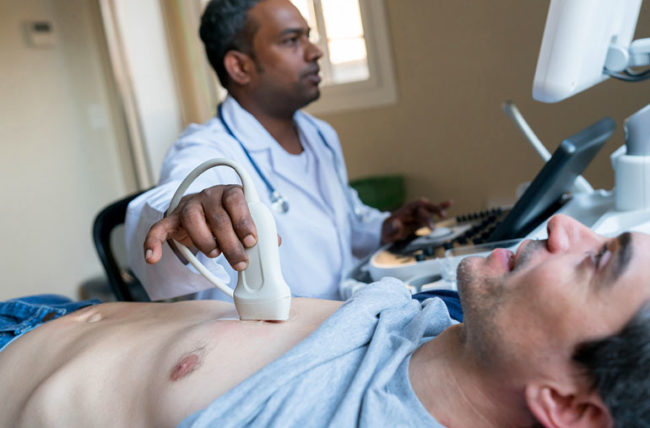You may be referred for an echocardiogram or ‘echo’ if your GP or cardiologist thinks you may have a problem with your heart.
An echocardiogram is a scan that uses sound waves (ultrasound) to produce pictures of your heart. It’s a completely painless test that doesn’t have any side effects and doesn’t use radiation. An echocardiogram tells us how well your heart is pumping and whether your heart valves are working properly.
An echocardiogram can help detect:
- Blood clots, blockages and damage from a heart attack
- Problems with the heart valves and aorta
- Heart failure
- Fluid build-up in the pericardium, the sac around the heart.
- A thickening or enlargement of the heart walls.
However, it cannot confirm whether or not you have angina.
In addition to diagnosing your problem, an echocardiogram will also help your doctor decide on the best treatment plan.


